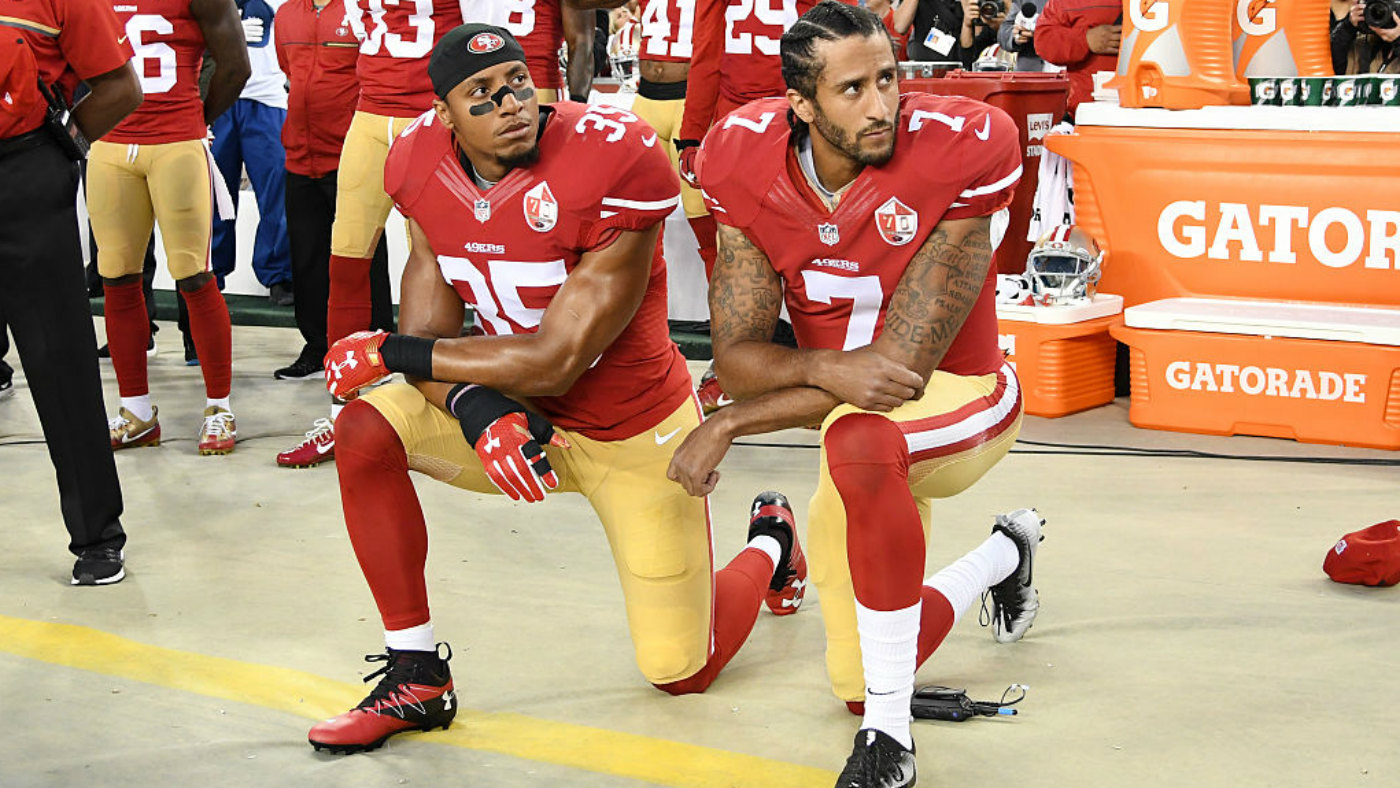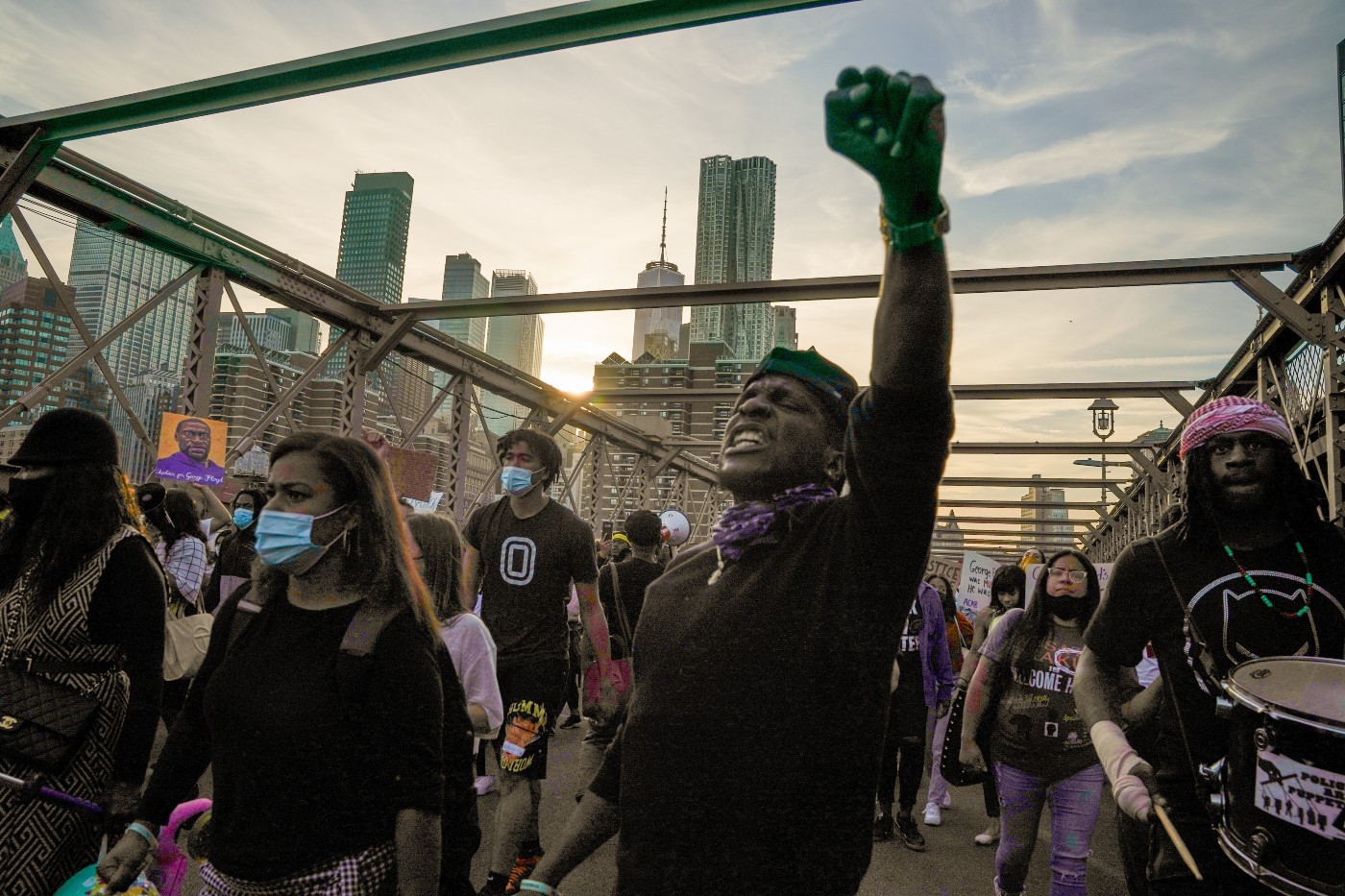Colin Kaepernick: Hero or traitor?
American footballer divides US after refusing to stand for the national anthem in protest at racial injustice

A free daily email with the biggest news stories of the day – and the best features from TheWeek.com
You are now subscribed
Your newsletter sign-up was successful
A silent protest by a minor American football player against racial injustice and police brutality is dividing opinion in the US.
What happened?
The controversy began in pre-season warm-up games when San Francisco 49ers quarterback Colin Kaepernick refused to stand for the US national anthem, saying he could not "show pride in the flag of a country that oppresses people of colour".
The Week
Escape your echo chamber. Get the facts behind the news, plus analysis from multiple perspectives.

Sign up for The Week's Free Newsletters
From our morning news briefing to a weekly Good News Newsletter, get the best of The Week delivered directly to your inbox.
From our morning news briefing to a weekly Good News Newsletter, get the best of The Week delivered directly to your inbox.
When the season started last week, Kaepernick, who is black but was raised by a white family, once again refused to stand for The Star-Spangled Banner and instead went down on one knee. He was joined by team-mate Eric Redi while two other 49ers and two members of the opposing LA Rams stood with their gloved fists raised in Black Power salutes. A handful of players from four other teams repeated the protest over the week.
The protest has also put the national anthem back in the spotlight, reigniting suggestions that its lyrics are racist. Lines from the little-known third stanza refer to former slaves who had joined the British to fight for their freedom in the war of 1812: "No refuge could save the hireling and slave, from the terror of flight, or the gloom of the grave."
Hero or traitor?
While many have spoken out in support of Kaepernick, there has been a vicious backlash against him, with a Baptist pastor greeted by cheers at a high-school game in Alabama when he suggested those against The Star-Spangled Banner should be shot.
A free daily email with the biggest news stories of the day – and the best features from TheWeek.com
"If you don't want to stand for the national anthem, you can line up over there by the fence and let our military personnel take a few shots at you," he said.
What has the impact been?
While American football has traditionally been a white sport, more than 68 per cent of the players are now black and the protests "spell trouble for America's most valuable sport", which has 32 teams valued at $63bn (£48bn), says the Daily Telegraph.
For decades, the fear of losing lucrative sponsorship deals - and a place in the team - has led players to keep a lid on dressing room activism. However, the emergence of groups such as Black Lives Matter, in response to a perceived increase in police brutality, has led some sport stars to stand up.
"We're entering an era where athletes are increasingly going to be activists," says Robert Boland, sport analyst, Ohio University. "They have absolutely huge platforms which they are now using through social media."
-
 Health insurance: Premiums soar as ACA subsidies end
Health insurance: Premiums soar as ACA subsidies endFeature 1.4 million people have dropped coverage
-
 Anthropic: AI triggers the ‘SaaSpocalypse’
Anthropic: AI triggers the ‘SaaSpocalypse’Feature A grim reaper for software services?
-
 NIH director Bhattacharya tapped as acting CDC head
NIH director Bhattacharya tapped as acting CDC headSpeed Read Jay Bhattacharya, a critic of the CDC’s Covid-19 response, will now lead the Centers for Disease Control and Prevention
-
 George Floyd legacy: what has changed in the US three years on
George Floyd legacy: what has changed in the US three years onfeature Police officers are more accountable but has ‘white empathy’ hit a wall?
-
 ‘Police tactics are not getting worse, they are simply being filmed’
‘Police tactics are not getting worse, they are simply being filmed’Instant Opinion Your digest of analysis from the British and international press
-
 Home Office worker accused of spiking mistress’s drink with abortion drug
Home Office worker accused of spiking mistress’s drink with abortion drugSpeed Read Darren Burke had failed to convince his girlfriend to terminate pregnancy
-
 In hock to Moscow: exploring Germany’s woeful energy policy
In hock to Moscow: exploring Germany’s woeful energy policySpeed Read Don’t expect Berlin to wean itself off Russian gas any time soon
-
 Were Covid restrictions dropped too soon?
Were Covid restrictions dropped too soon?Speed Read ‘Living with Covid’ is already proving problematic – just look at the travel chaos this week
-
 Inclusive Britain: a new strategy for tackling racism in the UK
Inclusive Britain: a new strategy for tackling racism in the UKSpeed Read Government has revealed action plan setting out 74 steps that ministers will take
-
 Sandy Hook families vs. Remington: a small victory over the gunmakers
Sandy Hook families vs. Remington: a small victory over the gunmakersSpeed Read Last week the families settled a lawsuit for $73m against the manufacturer
-
 Farmers vs. walkers: the battle over ‘Britain’s green and pleasant land’
Farmers vs. walkers: the battle over ‘Britain’s green and pleasant land’Speed Read Updated Countryside Code tells farmers: ‘be nice, say hello, share the space’